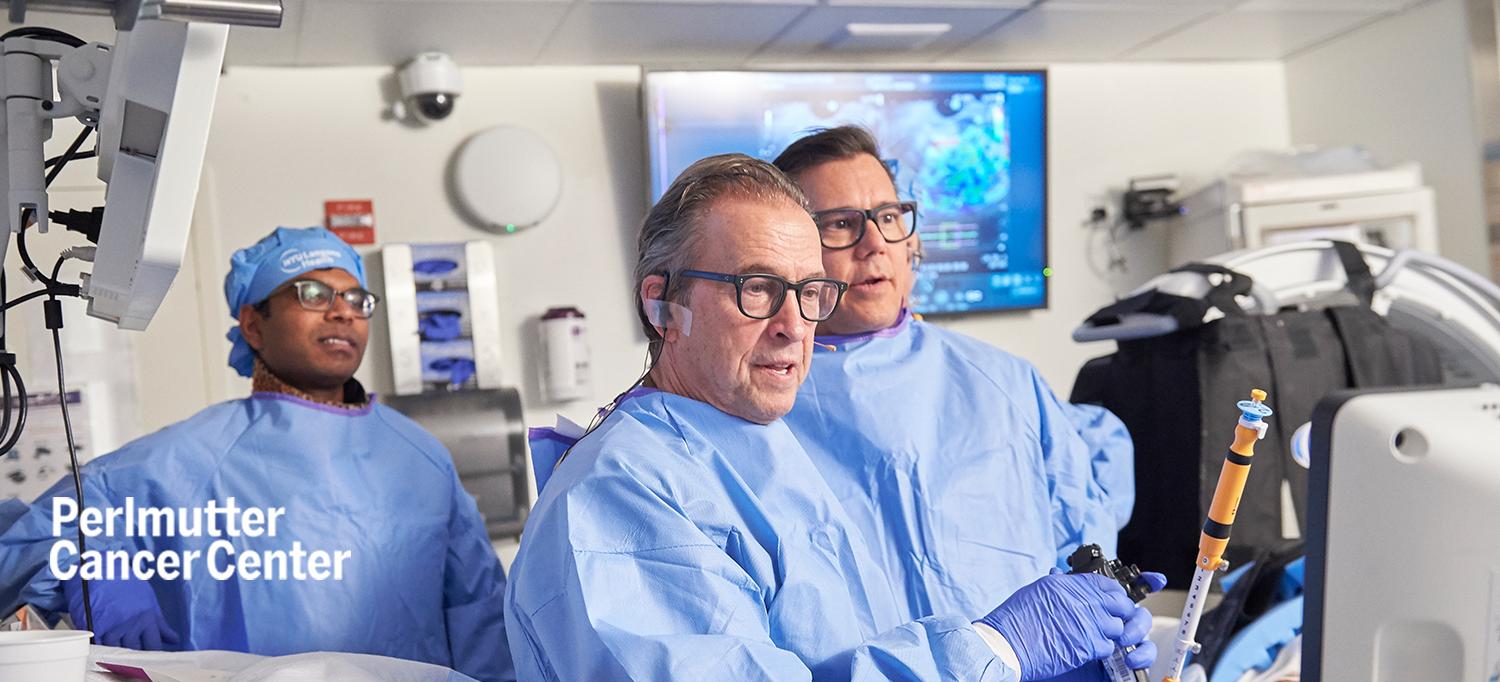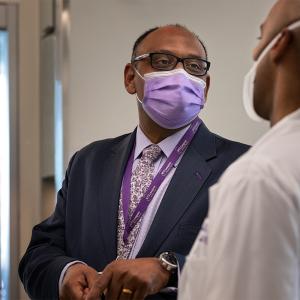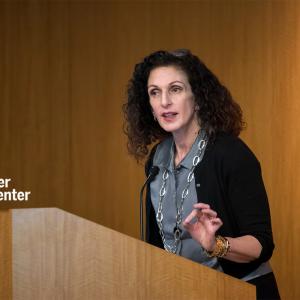
Photo: Juliana Thomas
In 2022, approximately 20,640 people living in the United States received an esophageal cancer diagnosis, and an estimated 16,410 died of the disease. Leonard Giarraputo could have been one of them. Fortunately, a simple CT scan saved the 76-year-old.
After his wife had a heart attack, Giarraputo was urged by his son to get a CT scan, evaluating his risk for a heart attack, and his primary care doctor agreed.
While he felt perfectly fine, given his age and out of an abundance of caution, Giarraputo got the scan done, only to have doctors detect an unexpected abnormality on his pancreas. Jessica Widmer, DO, chief of the Endoscopy GI Unit at NYU Langone Hospital—Long Island, went in to remove the abnormality, which turned out not to be cancerous, and also removed a few polyps from his esophagus while she did, in order to test them. One of the polyps was malignant; Giarraputo had an adenocarcinoma of the esophagus, a form of esophageal cancer.
“In a million years I would not have found out I have cancer had I not done the CT scan,” said Giarraputo.
His gastroenterologist, Gregory B. Haber, MD, chief of endoscopy for NYU Langone, took out the initial cancerous tumor. From there, Costas Bizekis, MD, a thoracic surgeon at NYU Langone’s Perlmutter Cancer Center, took over and performed an esophagectomy removing approximately 50 percent of his esophagus to ensure that they got the entirety of the cancer. Giarraputo was back to enjoying his retirement five days later.
“Esophageal cancer is about three to four times as prevalent in men as it is in women,” said Dr. Bizekis. “Leonard was very unfortunate but also very lucky that he got that CT scan, which caught his cancer early enough to treat effectively.”
“The thing that surprised me the most was how available Dr. Bizekis was,” said Giarraputo. “He’s always there for me, keeping me reassured and informed the whole way through the process.”
According to the American Cancer Society (ACS), just over 20,500 people will get an esophageal cancer diagnosis this year. The ACS and physicians encourage patients with esophageal conditions to seek treatment when possible and enroll in a screening program with early, routine endoscopies to monitor for disease.
Surgeons at NYU Langone’s Perlmutter Cancer Center and Robotic Surgery Center are highly experienced in minimally invasive robotic surgery to treat esophageal cancer. If the cancer is at an early stage, specialists may use advanced techniques to perform an endoscopic submucosal dissection, in which small surgical tools are inserted through a thin, flexible tube that is passed through the nose or mouth into the esophagus to remove the tumor. They may also use ablation—a minimally invasive procedure that uses heat or extreme cold to destroy the cancer cells or as a palliative option to help reduce pain.
Listen to more from WCBSAM On-Demand.

